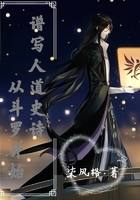``She ought to go on the stage,'' growled Casey.
But Wharton said in an unsteady voice, ``That's right, Miss.
They can't force you to talk. Don't say a word until you get a lawyer.''
Hanlon gave him a furious look. ``Don't you meddle in this,'' he said threateningly.
Wharton laughed. ``The man killed himself,'' he replied. ``I can tell by the slant of the wound. And I don't propose to stand by and see you giving your third degree to this little girl.''
``We've got the proof, I tell you,'' said Hanlon. ``We've got a witness who saw her do it--or at least saw her here when she says she wasn't here.''
Wharton shrugged his shoulders.
``Don't say a word,'' he said to Hilda. ``Get a lawyer.''
``I don't want a lawyer,'' she answered.
``I'm not guilty. Why should I get a lawyer?''
``Well, at any rate, do all your talking in court. These fellows will twist everything you say.''
``Take her to the station house,'' interrupted Hanlon.
``But I'm innocent,'' said Hilda, clasping her hands on her heart and looking appealingly at the captain.
``Take her along, Casey.''
Casey laid hold of her arm, but she shook him off. They went through the sitting-room of the saloon and out at the side door.
When Hilda saw the great crowd she covered her face with her hands and shrank back. ``There she is! There she is! They're taking her to the station house!'' shouted the crowd.
Casey closed the door. ``We'll have to get the wagon,'' he said.
They sat waiting until the patrol wagon came. Then Hilda, half-carried by Casey, crossed the sidewalk through a double line of blue coats who fought back the frantically curious, pushed on by those behind. In the wagon she revived and by the time they reached the station house, seemed calm. Another great crowd was pressing in; she heard cries of ``There's the girl that killed him!'' She drew herself up haughtily, looked round with defiance, with indignation.
Her father and Otto rushed forward as soon as she entered the doors. She broke down again. ``Take me home! Take me home!'' she sobbed. ``I've not done anything.'' The men forgot that they had promised each the other to be calm, and cursed and cried alternately. The matron came, spoke to her gently.
``You'll have to go now, child,'' she said.
Hilda kissed her father, then she and Otto clasped each the other closely. ``It'll turn out all right, dear,'' he said. ``We're having a streak of bad luck. But our good luck'll be all the better when it comes.''
Strength and hope seemed to pass from him into her. She walked away firmly and the last glimpse they had of her sad sweet young face was a glimpse of a brave little smile trying to break through its gray gloom. But alone in her cell, seated upon the board that was her bed, her disgrace and loneliness and danger took possession of her. She was a child of the people, brought up to courage and self-reliance. She could be brave and calm before false accusers, before staring crowds. But here, with a dim gas-jet revealing the horror of grated bars and iron ceiling, walls and floor--She sat there, hour after hour, sleepless, tearless, her brain burning, the cries of drunken prisoners in adjoining cells sounding in her ears like the shrieks of the damned. Seconds seemed moments, moments hours. ``I'm dreaming,'' she said aloud at last. She started up and hurled herself against the bars, beating them with her hands. ``I must wake or I'll die. Oh, the disgrace! Oh! the shame!''
And she flung herself into a corner of the bench, to dread the time when the darkness and the loneliness would cease to hide her.













